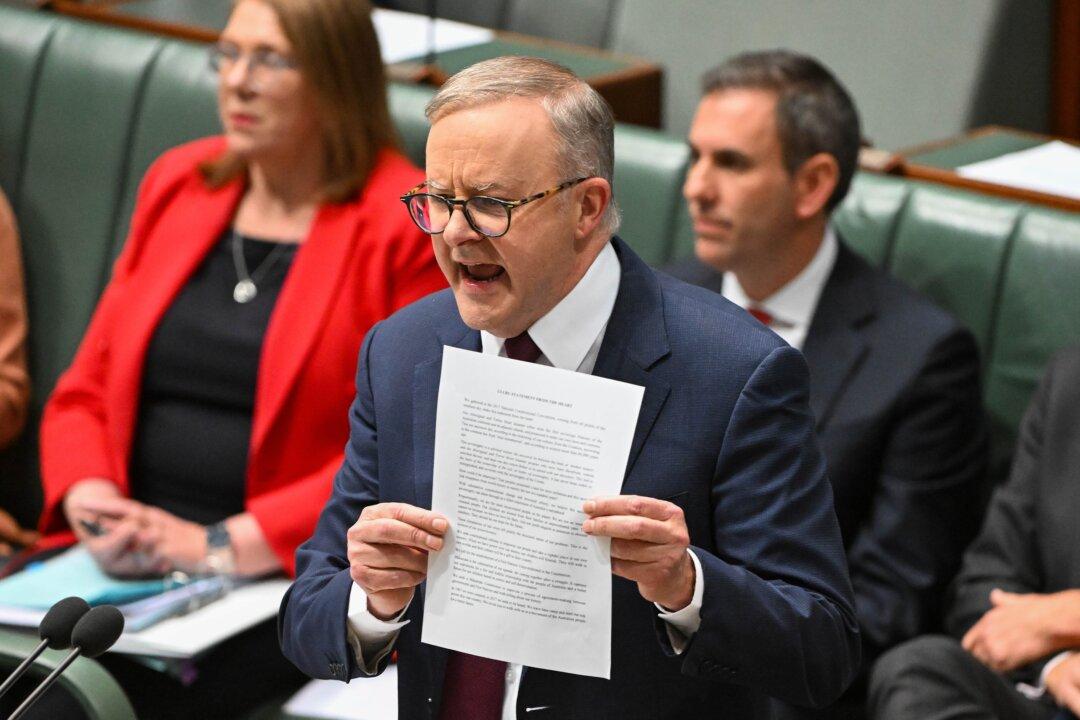Prime Minister Anthony Albanese has rebuked claims that the Uluru Statement from the Heart also includes a plan to pay reparations to Indigenous people, labelling it a “conspiracy” theory by those opposing a change to the Constitution.
“It is something ... like a whole lot of the QAnon theories. We have all sorts of conspiracy stuff out there, but this is a ripper,” he told the Australian Parliament on Aug. 8.





